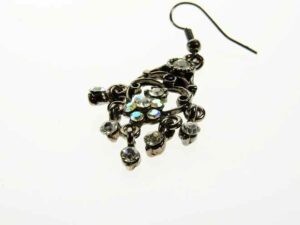
Strategies to avoid Inheritance Disputes
One of the many aspects of a professionally created estate plan involves employing strategies to avoid inheritance disputes. Your estate planning attorney has various tools, from creating a revocable living trust to drafting a detailed and legally sound will, as outlined in the article “6 Estate Management Strategies to Avoid Inheritance Disputes and How to Implement Them” from Legal Reader.
Creating a revocable living trust and placing assets in the trust allows those assets to be passed to heirs directly and according to the instructions you provide in the language of the trust. Assets not in the will need to pass through the probate process, where those involved in the estate plan might need to attend lengthy and stressful court proceedings. In some jurisdictions, the court may require the presence of all heirs and even estranged family members who were not properly disinherited.
In the probate process, beneficiaries can air grievances if they are unhappy with the inheritance agreement and could potentially challenge the will. By passing assets via a trust, you can completely reduce or avoid the opportunity for these disputes to occur.
The foundation of a successful estate plan is a will created with an experienced estate planning attorney. A will is a legally binding document outlining how the decedent wanted their assets and property distributed upon death. The estate planning attorney will work with you to ensure the language in the will is extremely specific and leaves no room for interpretation.
Some assets pass through beneficiary designations, including life insurance policies, retirement, investment, and bank accounts. To avoid problems with these financial assets, regularly review and update beneficiary designations to avoid giving someone no longer in your life a generous gift. These should be reviewed anytime a significant life event occurs, like marriage, divorce, birth or death, changes in financial circumstances, or when you acquire new assets.
A prenuptial agreement can mitigate the risk of inheritance disputes by establishing specific terms and conditions in the event of a divorce. They are particularly important in states where the courts can divide property acquired during the marriage regardless of where the assets came from. By drafting documents explicitly declaring intentions about the treatment of inherited assets, you provide an additional layer of protection to assets in case of divorce. The process also fosters communication between parties to assist in clarifying expectations for the future.
A well-drafted no-contest clause can diminish the likelihood of legal battles among heirs and challengers. It helps dissuade disgruntled beneficiaries from pursuing costly litigation by putting any inheritance at risk if they should decide to pursue what they feel are unfair distributions. It is imperative to engage an experienced estate planning attorney licensed to practice law in your state to have an effective no-contest clause in a will or a trust.
In some situations, liquidating non-cash assets like real estate makes the most sense. It’s far easier to divide cash than proportions of real estate. However, a buyout arrangement can be implemented if one sibling wants to purchase the property. Beneficiaries could buy out each other’s shares if there’s more than one heir, eliminating the need to sell the asset.
By employing strategies to avoid inheritance disputes, you can ensure your will clearly articulates your wishes. If you would like to learn more about inheritance issues, please visit our previous posts.
Reference: Legal Reader (Dec. 4, 2023) “6 Estate Management Strategies to Avoid Inheritance Disputes and How to Implement Them”















